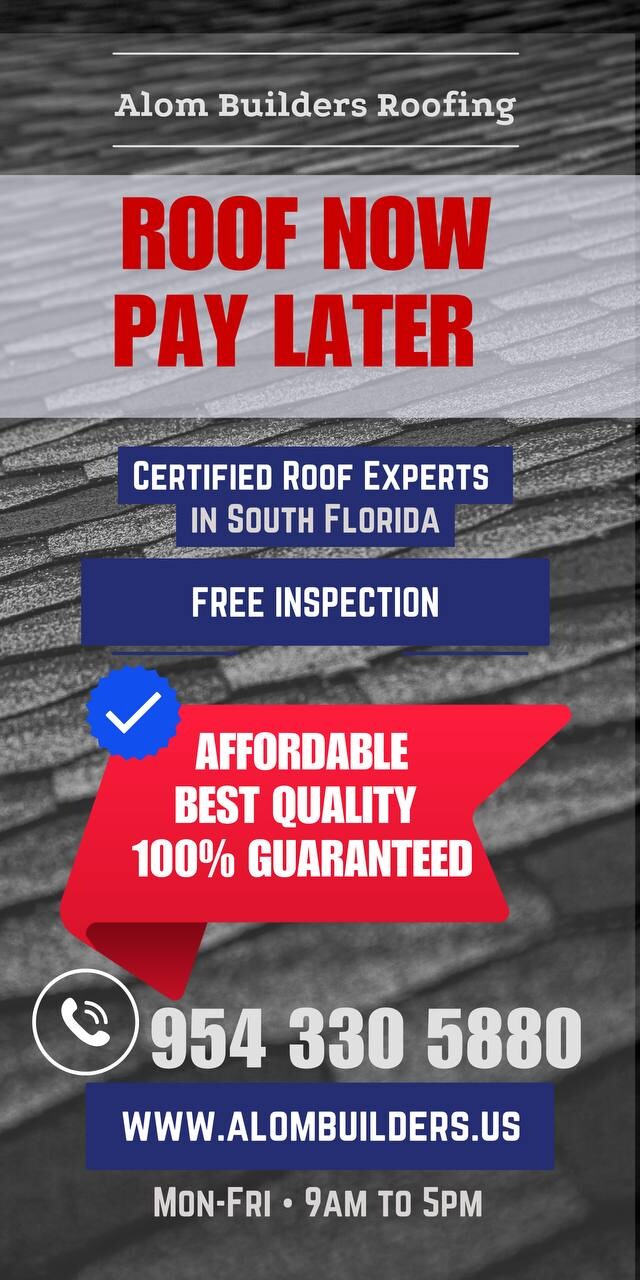[ad_1]
The Ultimate Guide to Commercial Roofing in Miami: What You Need to Know
The Importance of Commercial Roofing in Miami
As one of the most populous and vibrant cities in the United States, Miami is a hub of commerce and industry. From office buildings and shopping centers to restaurants and hotels, the city’s commercial infrastructure is a critical component of its economy. A reliable and well-maintained commercial roof is essential for the success of any business, providing a safe and secure environment for employees, customers, and clients alike. In Miami, the hot and humid climate puts a unique set of challenges on commercial roofing systems, making it crucial for business owners to stay informed and proactive when it comes to roof maintenance and repair.
Types of Commercial Roofs in Miami
In Miami, there are a variety of commercial roof options to choose from, each with its own set of benefits and drawbacks. For example, TPO (thermoplastic olefin) roofing is a popular choice in the city due to its durability and resistance to corrosion. TPO roofs are also environmentally friendly, with many TPO manufacturers using recycled materials in their products. In contrast, PVC (polyvinyl chloride) roofs are known for their UV resistance and long lifespan. EPDM (ethylene propylene diene monomer) roofs are another common option, with their versatility and ease of installation making them a favorite among roofing contractors. Additionally, membrane roofs, including those made from materials such as polyester and polyolefin, are also commonly used on commercial buildings in Miami.
Commercial Roofing Costs in Miami
The cost of commercial roofing in Miami can vary significantly depending on a number of factors, including the size and type of roof, the material used, and the expertise of the contractor. On average, a new commercial roof in Miami can cost anywhere from $5 to $15 per square foot, with costs ranging even higher for large or complex projects. Factors such as the type of roofing system, the quality of the materials used, and the level of labor required can all impact the final cost of a commercial roof in Miami. It’s also important for business owners to consider ongoing maintenance and repair costs when budgeting for a commercial roof, as these costs can add up quickly.
Commercial Roofing Design and Installation
In Miami, commercial roof design and installation require a deep understanding of local building codes and regulations, as well as the unique climate and environmental conditions of the city. A qualified roofing contractor with experience in Miami’s climate will be able to assess the specific needs of your business and recommend the best roofing solution for your facility. From energy-efficient materials to advanced leak detection systems, there are many innovations in commercial roofing design and installation that can help ensure the success and sustainability of your business.
Commercial Roofing Maintenance in Miami
Regular maintenance is essential to extending the lifespan of your commercial roof and preventing costly repairs. In Miami, the hot and humid climate can cause even the sturdiest roofs to deteriorate more quickly than roofs in cooler and dryer climates. To prevent issues, business owners should stay on top of regular cleaning and inspections, addressing minor issues before they become major problems. This may involve hiring a qualified roofing contractor to inspect your roof periodically, as well as educating employees on proper roof access and maintenance procedures.
Commercial Roofing Insulation in Miami
In Miami, commercial roof insulation is a critical component of energy efficiency and sustainability. Effective insulation can help reduce energy costs, mitigate heat and cold stress on roofing materials, and even enhance the overall aesthetic appeal of your building. There are many different types of insulation materials and systems available for commercial buildings in Miami, including fiberglass batts, spray foam insulation, and reflective radiant barrier systems. A qualified roofing contractor will be able to assess your facility’s specific insulation needs and recommend the best solutions for your business.
Commercial Roofing Repair and Replacement
At some point, your commercial roof will likely require repair or replacement. In Miami, it’s common for roofs to deteriorate more quickly than expected, especially in high-traffic areas or regions with harsh weather conditions. A reputable roofing contractor can help identify and address common issues, such as leaks, punctures, and structural damage. In the event that a roof requires replacement, a qualified contractor will work with you to design and install a new roof that meets your facility’s unique needs and budget.
Commercial Roofing and Storm Damage
Miami’s hurricane-prone climate can pose a significant threat to commercial buildings, including roofing systems. In the event of severe weather, a storm can cause significant damage to even the sturdiest roofs. After a storm, it’s essential for business owners to assess damage and address issues promptly, as delays can lead to further damage and even legal liability. A qualified roofing contractor can help you identify and address storm-related issues, from tarping and patching to complete roof replacement and restoration.
Commercial Roofing Codes and Regulations in Miami
In Miami, commercial roofs must comply with a variety of local and national building codes and regulations. This includes the Florida Building Code, the International Building Code, and the International Energy Conservation Code. A qualified roofing contractor will be well-versed in these regulations and ensure that your facility’s roof is designed, installed, and maintained in compliance with these standards. This may also involve securing necessary permits and inspections throughout the roofing process.
Commercial Roofing and the Environment
Commercial roofing can have a significant impact on the environment, from material selection to installation and maintenance. In Miami, eco-friendly options such as green roofs and cool roofs can help reduce energy consumption, mitigate heat stress, and even promote biodiversity. By choosing an environmentally responsible roofing solution, business owners can help minimize their facility’s carbon footprint and contribute to a more sustainable future.
[ad_2]
 +1 954-228-7485
+1 954-228-7485 